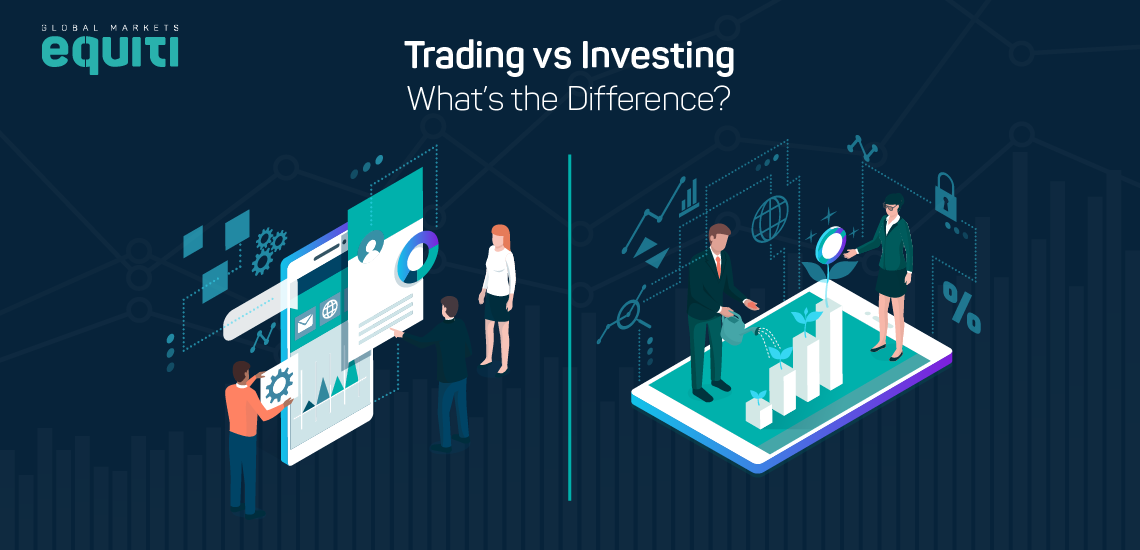The author is an expert in the field of multi-asset trading.
Trading vs Investing – What’s the Difference?

Though the terms trading and investing are sometimes used interchangeably, they are actually two very different concepts in the context of the capital markets and the foreign exchange market in particular. A trader and investor may both be seeking the same objective - profit in the various financial markets, but while their goals are the same, their methods and styles differ quite markedly. Let’s look at these trading vs investing differences, and see which one is right for you.
Trading
Trading is all about the actual active act of trading, involving frequent buying and selling of financial instruments such as currency pairs or commodities. The goal of trading is to earn a profit through rapid buying and selling, with the objective that it will bring better returns than traditional long-term investing. Traders concentrate on monthly or even weekly returns of as much as ten or more percent, whereas investors may be aiming for such return percentages on an annual basis.
As a fast-paced and involved process, trading usually entails very close and active monitoring of the market to quickly identify buying and selling opportunities and capitalize on good trading windows. Traders aim to make a profit by buying at a lower price and selling at a higher price, often in a short period. They can also make profit by short selling, which means selling at a higher price and buying to cover at a lower price when the market is falling.
Traders, unlike investors who have the luxury of waiting out their positions, must get in and out within a specific time window, and often utilize automated orders such as stop losses to get out of losing positions or automatically sell once their desired price level is reached. Traders are more likely to favour technical analysis over fundamental outlook when making daily trades, and use tools such as moving averages to identify good trading opportunities.
Investing
In contrast to trading, investing involves much slower and longer time frames, and often more buying than selling. The goal of investing is to slowly generate profits over time through the buying and holding of investment instruments, often diversified portfolios of stocks, bonds, and mutual funds. Investors generally aren’t looking to make a quick return, and can compound their profits by reinvesting any interest or dividends into additional shares of an instrument.
And unlike trading, investments are usually held for longer periods of time, from a year up to decades, as famous investors like Warren Buffet have so successfully done. Although traders, too, can hold positions for long periods, they are generally done as weekly swing trades or even just day trades, some positions are even held for just seconds! The longer periods of holding allow investors to take advantage of things such as interest, dividends, and compounding returns all along.
Whereas traders must be constantly wary of potential downtrends and respond accordingly, investors can stay put during market fluctuations, and if the fundamental outlook is good, expect the prices to rebound and to recover any losses. As such, investors more often use fundamental analysis and try to identify things that hold less value now than they believe will be worth in the future. Investors look to grow their money by making long-term strategic investments.
Trading vs Investing – The Bottom Line
The main factor in the difference between trading and investing is time and level of active participation. While both traders and investors search for profits in the global markets, traders take a more active daily role, some even making it their full-time job. Where investors look for larger returns over a long period of time with buy and hold tactics, traders find success in both rising and falling markets through a multitude of positions and potentially smaller, but more frequent, profits.
So, you fancy yourself a trader? Open a free demo account and take a shot at trading currencies, popular commodities, top global indices, and precious metals with $10,000 in virtual money.